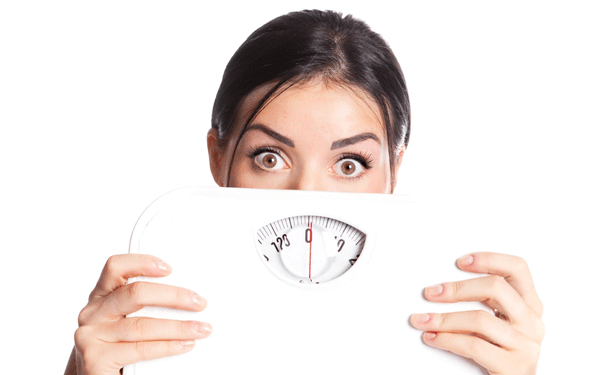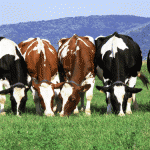
People whose brains respond more strongly to food cues are more likely to gain weight in the future. Image: Shutterstock
Functional MRI scans can reliably judge a person’s most basic appetites.
Scientists at Dartmouth, US, have found that young women whose nucleus accumbens, or “˜reward centre’ of the brain reacts strongly to images of appealing foods are more likely to gain weight in the future compared to subjects who had more subdued responses. Likewise, subjects whose nucleus accumbens reacted more strongly to sexual imagery were more likely to partake in future sexual activity.
“This is one of the first studies in brain imaging that uses the responses observed in the scanner to predict important, real-world outcomes over a long period of time,” says Professor Todd Heatherton of Human Relations in the department of psychological and brain sciences and co-author of the study. “Using brain activity to predict a consequential behavior outside the scanner is pretty novel.”
Researchers weighed and calculated the BMI (body mass index) of 58 female university freshmen. Freshmen were chosen, as they are more at risk of putting on weight; the dreaded “˜Freshmen Fifteen‘ — 15 being the average amount of weight (in pounds) gained by students leaving home during their first year of university — as William Kelley, associate professor of psychological and brain science and a senior author on the paper, refers it as.
The subjects had their brains scanned using functional magnetic resonance imaging (fMRI) while they viewed a series of images of appetizing foods, environmental scenes and erotic images. This technique measures blood flow to brain regions, providing an image of changing energy use in the brain at any given moment. The women had no idea of the real purpose of the study. When they returned six months later, the women’s weight and responses to questionnaires were compared to heir previously recorded weight and brain scan data.
“The people whose brains responded more strongly to food cues were the people who went on to gain more weight six months later,” Kathryn Demos, first author of the paper, explains in a press release.
Importantly, these reactions were behaviour-specific. Weight gain was only associated with a response to food, and sexual desire and activity were only linked to the response to erotic images. Therefore, specific temptations, not just an overactive nucleus accumbens, trigger these behaviours.
“We seek to understand situations in which people face temptations and try to not act on them,” Kelley told Livescience. “Controlling temptation may be a careful balancing act between parts of the brain that get excited for rewards and parts of the brain that rein in these urges,”
Researchers suspect this method may not predict weight gain over long periods of time, as people have the ability to self-regulate — their will power may change. However, they note that awareness is the first step towards controlling cravings.
“You need to actively be thinking about the behavior you want to control in order to regulate it,” says Kelley. “Self-regulation requires a lot of conscious effort.”
Source: EurekAlert, Livescience






